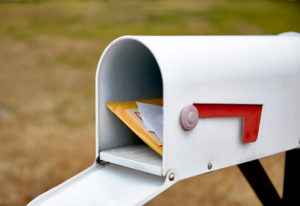Does it Really Pay to Win the Lottery?

Everyone dreams of winning the lottery. The thought of taking home hundreds of millions of dollars is enough to get even the laziest people off the couch and into their local quick-e-mart to purchase some tickets. The country has been abuzz during the last several days over the huge Powerball jackpot that ultimately reached $1.6 billion, according to lottery officials.
Of course, word broke last night that someone had finally won the big prize. The first reported winner was in California, however, subsequent reports noted that winning tickets were also sold in Tennessee and Florida. Several other reports have surfaced that there were a few $1 million dollar winners, as well. So now that these lucky lotto winners have struck it rich, just how fortunate are they.
First, because there were three winning tickets the winners will have to split the jackpot three ways, thus no one will become an instant billionaire. Even if only one winning ticket has been sold that person would not be walking away with a billion dollars. That’s because every lottery winner has a silent partner, like it or not. The taxman always gets a cut of any lottery prize, but exactly how much in taxes a lottery winner pays depends on several factors.
The IRS treats lottery winnings as income and therefore it is taxed at the highest rate of 39.6 percent. When you win a lottery prize the IRS takes 25 percent right off the top. The other 14.6 percent is paid as part of your taxes the following year. So for example, if the winner chose the lump sum payment of the $1.6 billion, they would receive $930 million minus the 25 percent federal tax off the top. That’s a $232.5 million tax bill up front, with another $135.8 million the following year.
That would leave you with about $560 million. That’s still a nice take-home prize, for sure, but not the $1.6 billion you were dreaming of. Additionally, if you live in a state with state income tax, you will be responsible for those taxes as well. Living in some locations, like New York City, would cost you state, county and city taxes on top of the federal tax, which could add up to another 15 percent of your winnings.
Don’t think you can give away a bunch of your money tax-free either. You will be responsible for the gift tax if you go over the allotted $14,000 a year per recipient as well. The gift tax is 40 percent if you go over your lifetime gift exemption amount of $5.45 million. In any case, the best thing to do if you win the lottery is to meet with a competent tax accountant/advisor as soon as you can, even before you claim your prize. This will give you the best opportunity to save as much as you can on taxes.
What the IRS Has On File About You and How to Obtain Your Tax Files
What the IRS Has On File About You and How to Obtain Your Tax Files IRS liens and levies can wreak havoc on a person’s life, making it difficult to obtain financing on a home or a car and wiping out savings. Maybe you want access to your tax files to see where the problem…
How to Respond to That FATCA Letter You Just Received in the Mail
How to Respond to That FATCA Letter You Just Received in the Mail Are you among the many Americans who have a bank account(s) in another country? If you are, then you have probably received a letter in the mail recently from the IRS. If you haven’t, then it’s almost assuredly on its way. So…
Job Search Expenses Can be Tax Deductible
Can job search expenses be tax deductible? Summertime is the season that often leads to major life decisions, such as buying a home, moving or a job change. If you are looking for a new job that is in the same line of work, you may be able to deduct some of your job hunting…
IRS Simplifies Tip Reporting
IRS Simplifies Tip Reporting The Internal Revenue Service today released formal guidance on its new tip reporting procedure, the Attributed Tip Income Program (ATIP) ATIP expands the existing IRS tip reporting and education program by offering employers in the food and beverage industry an additional tip reporting program. ATIP reduces industry recordkeeping burdens, has simple…



